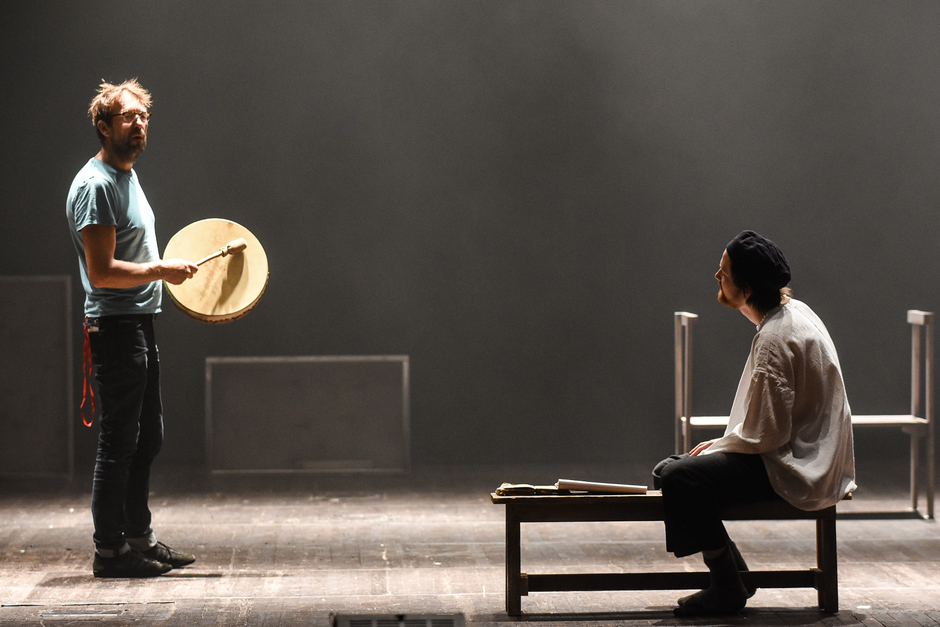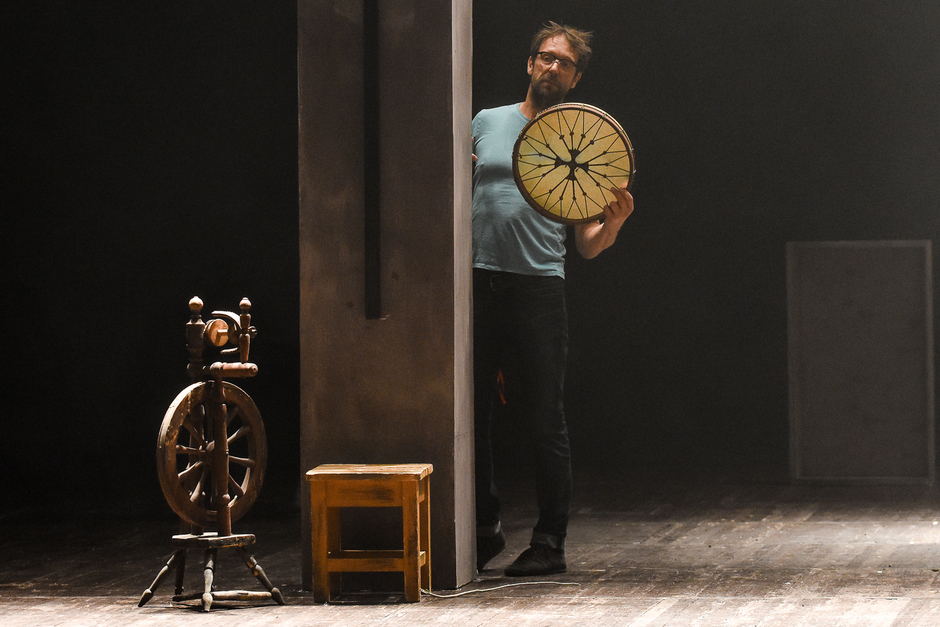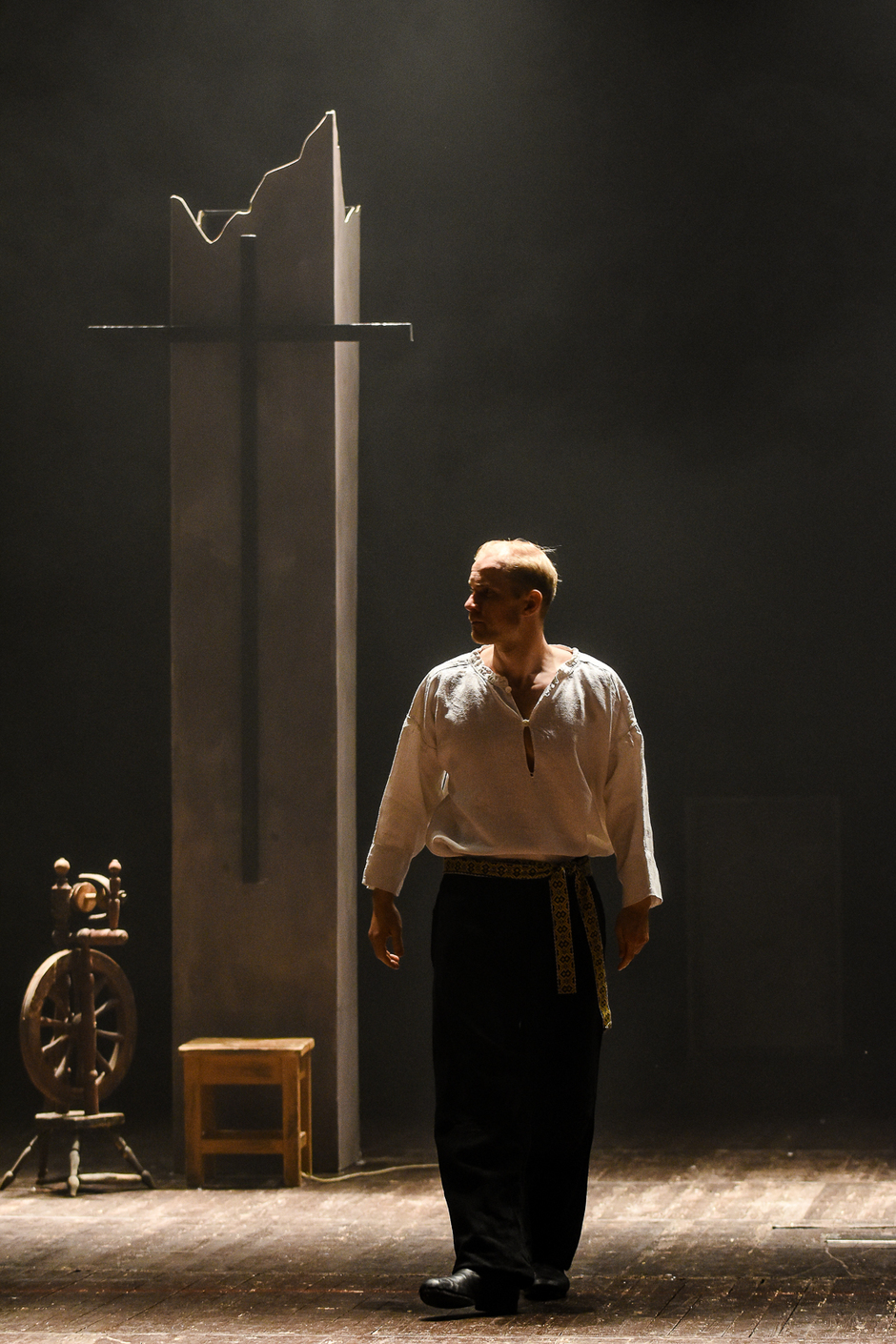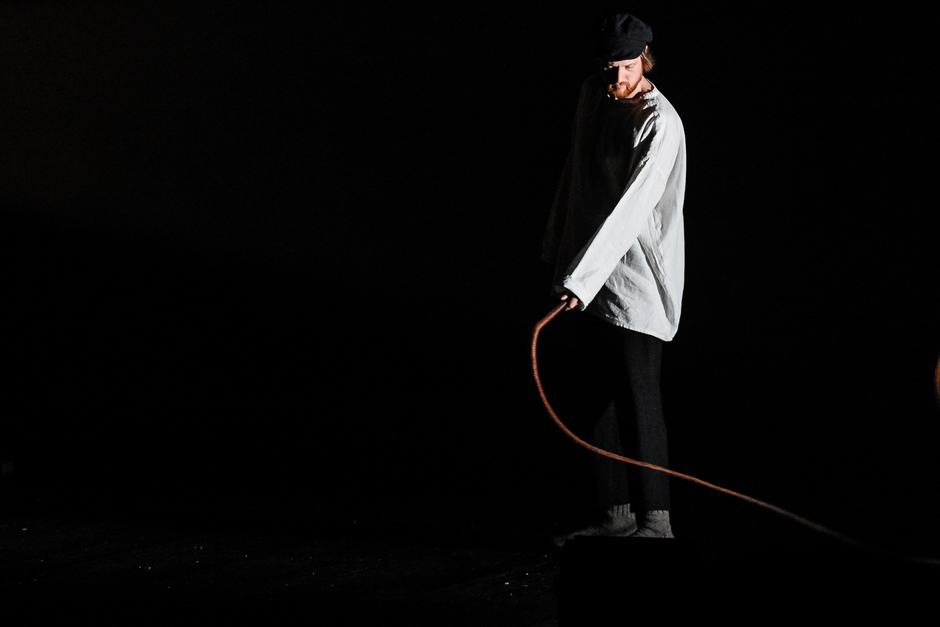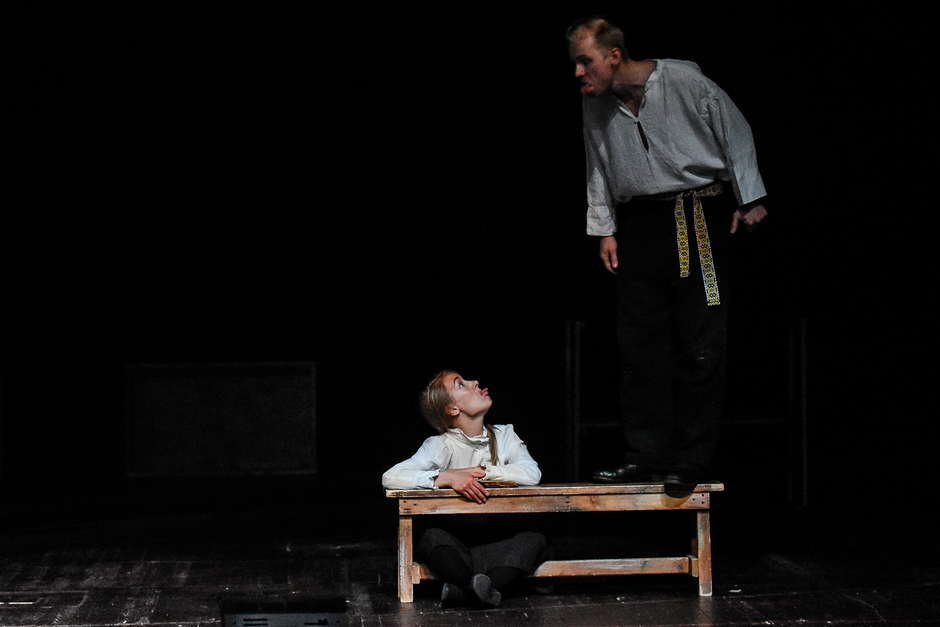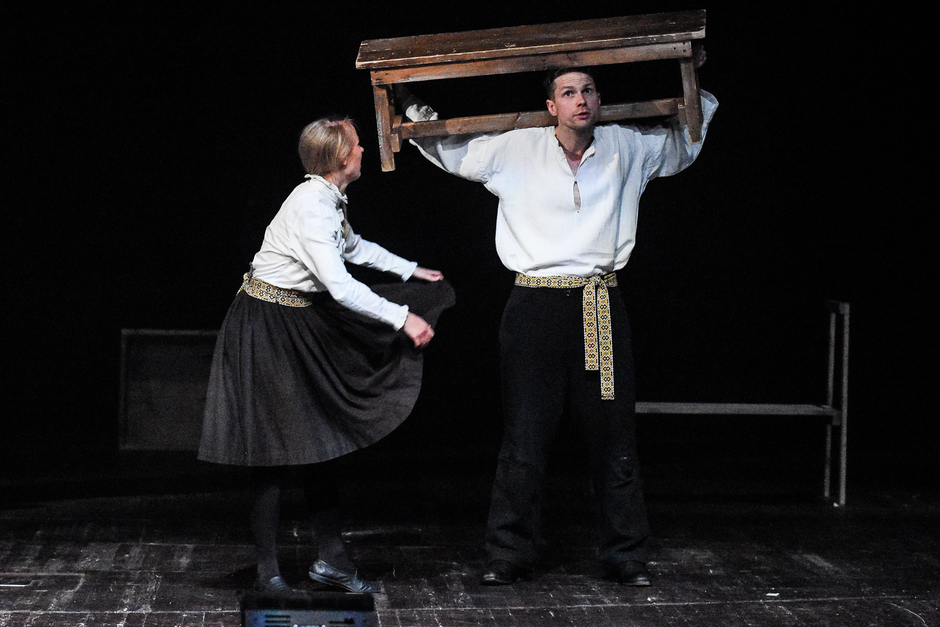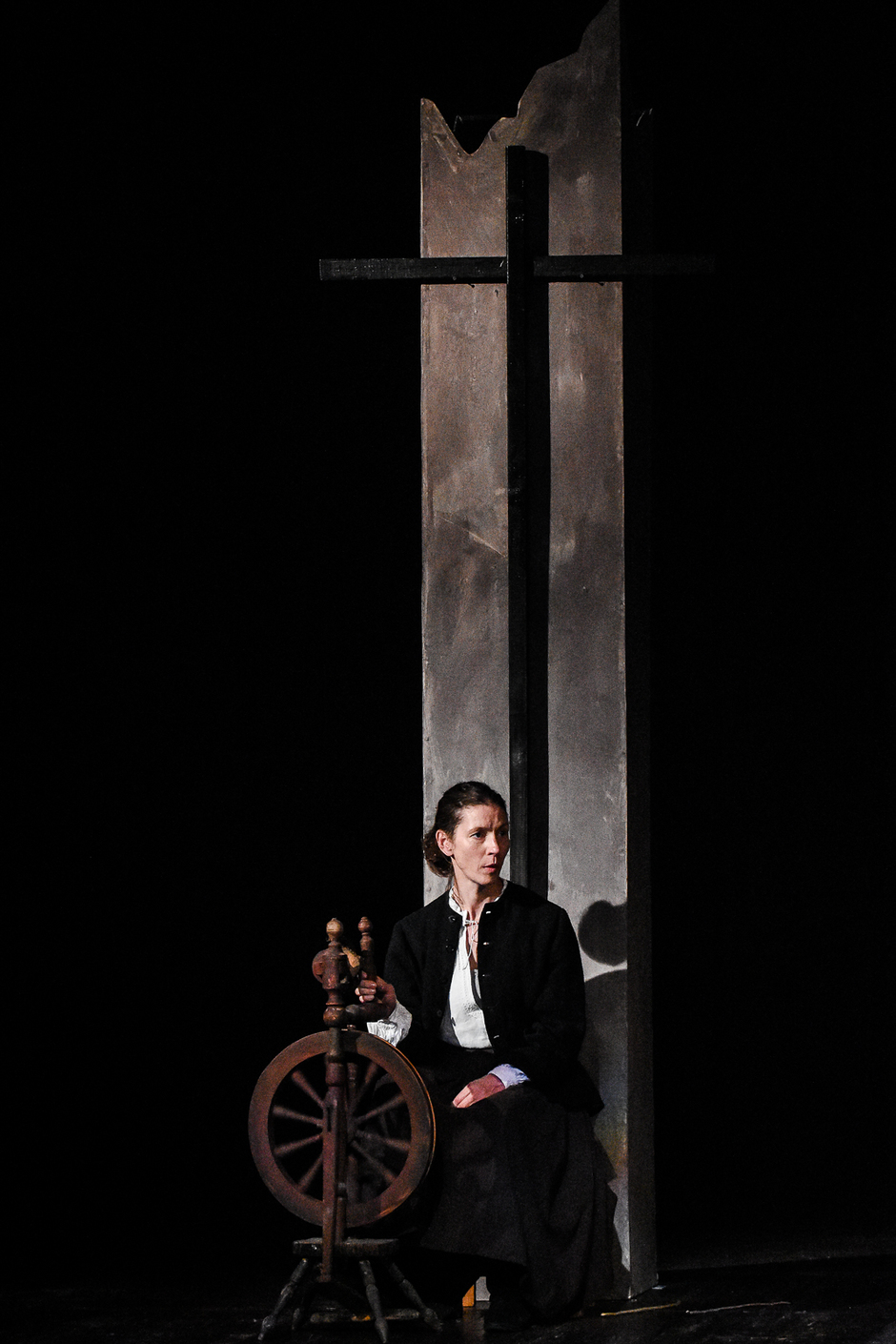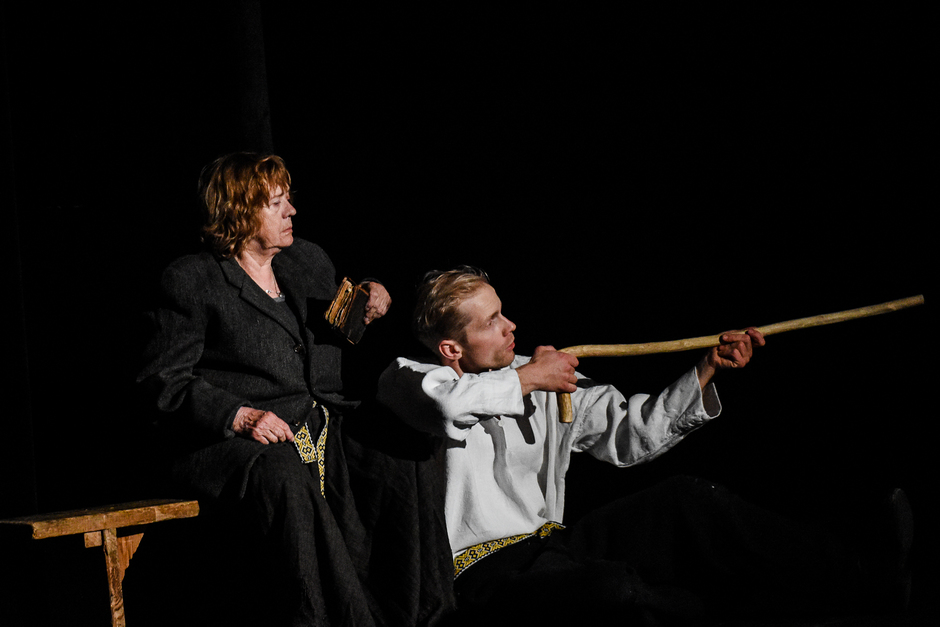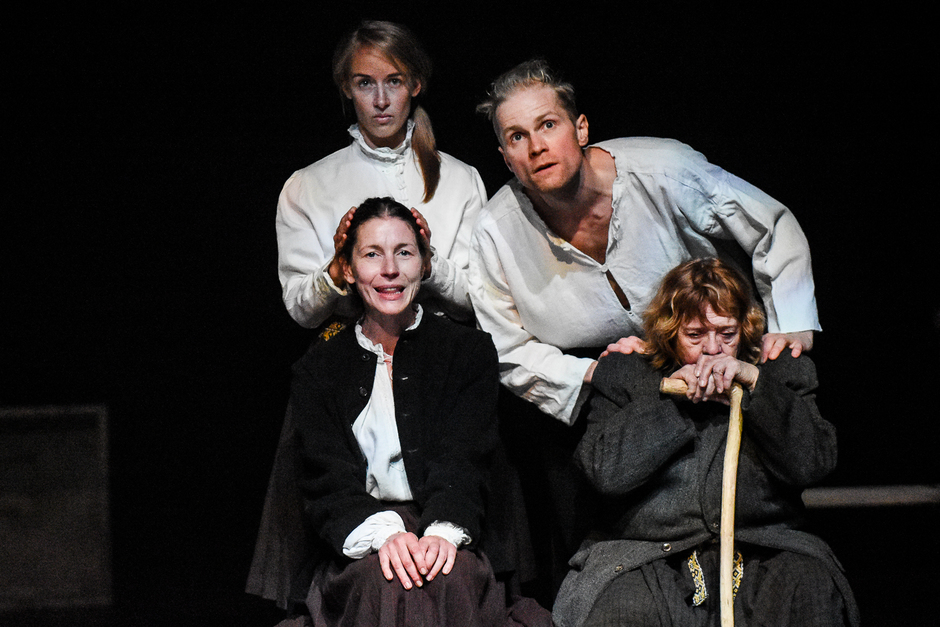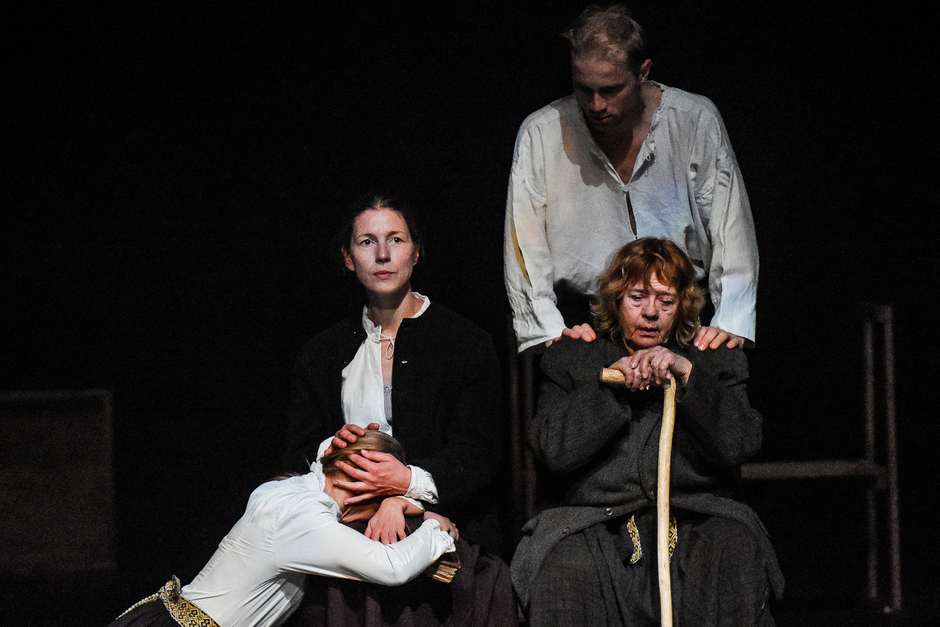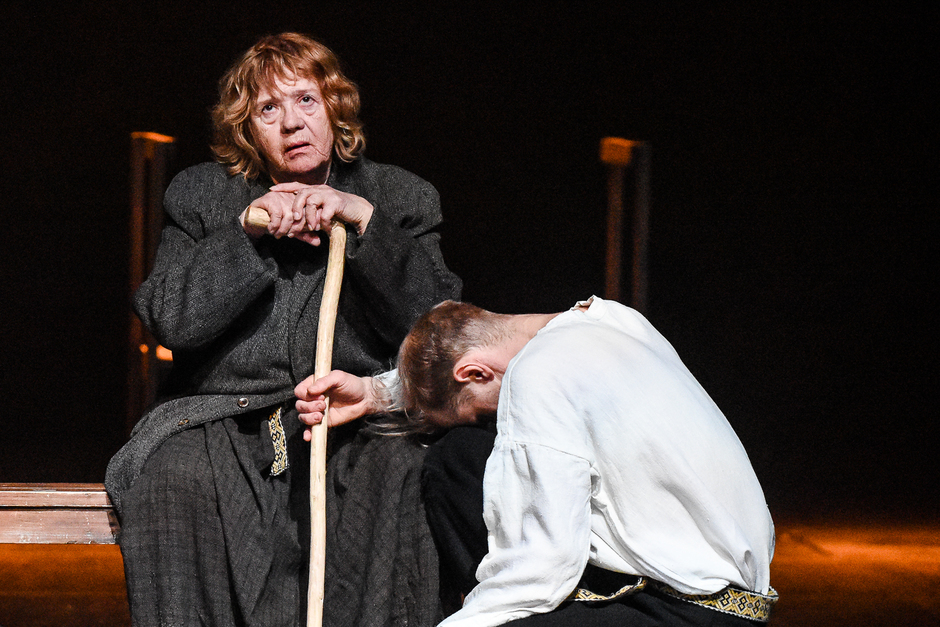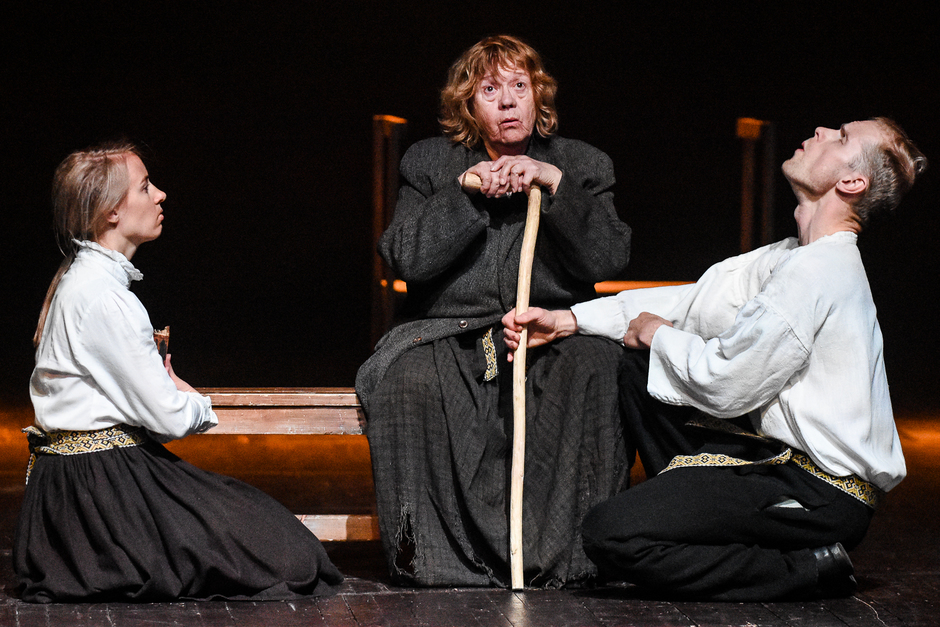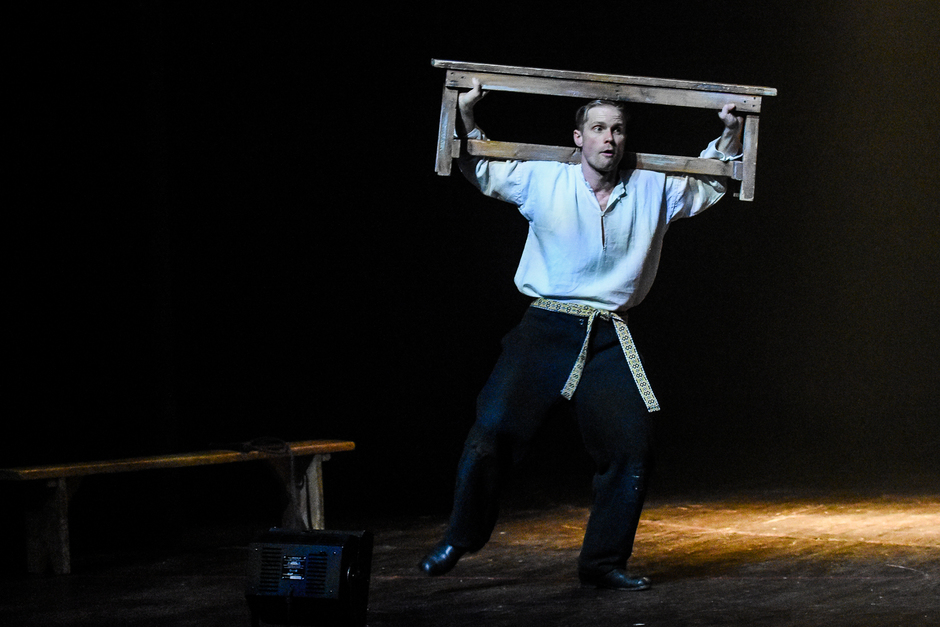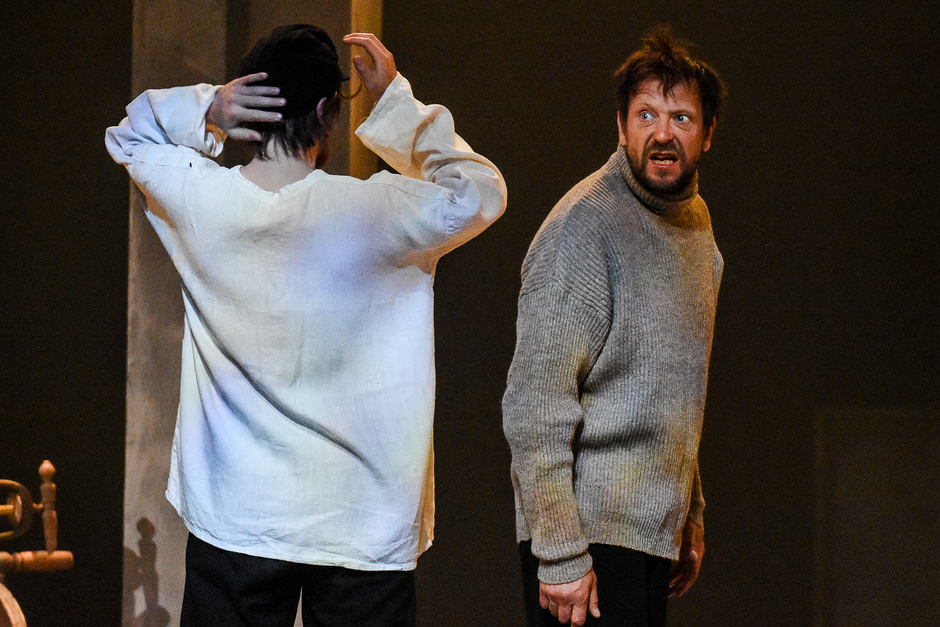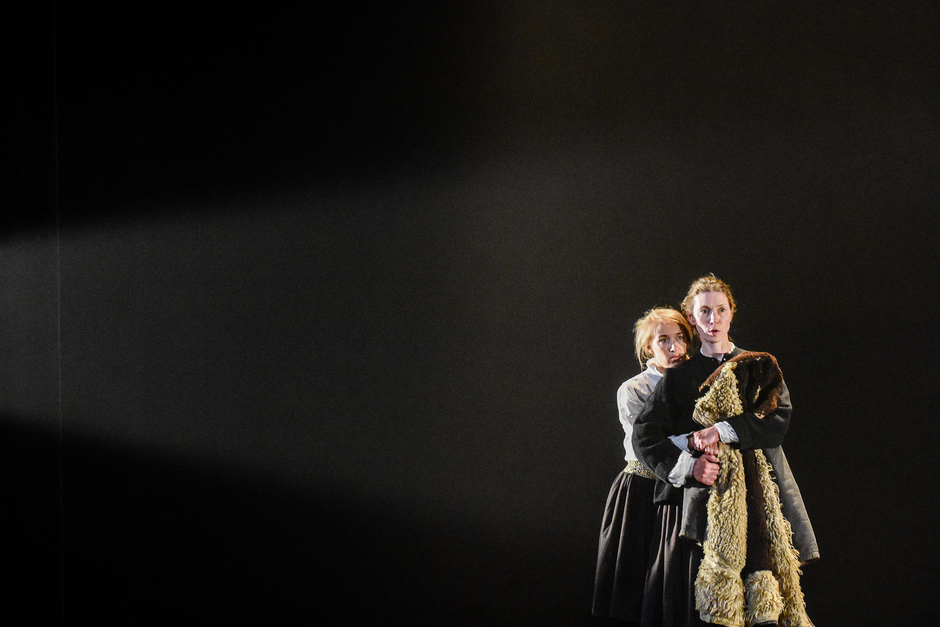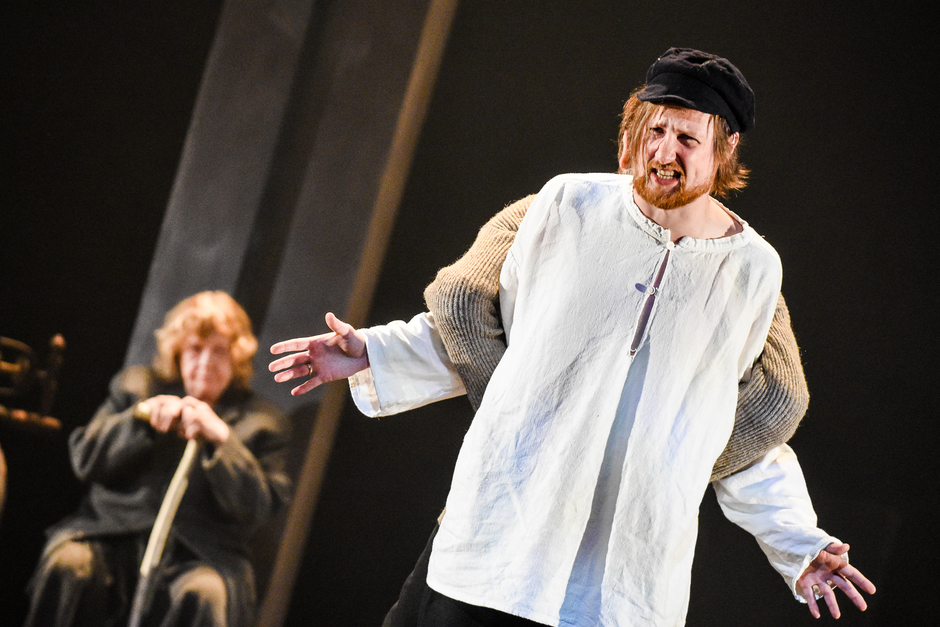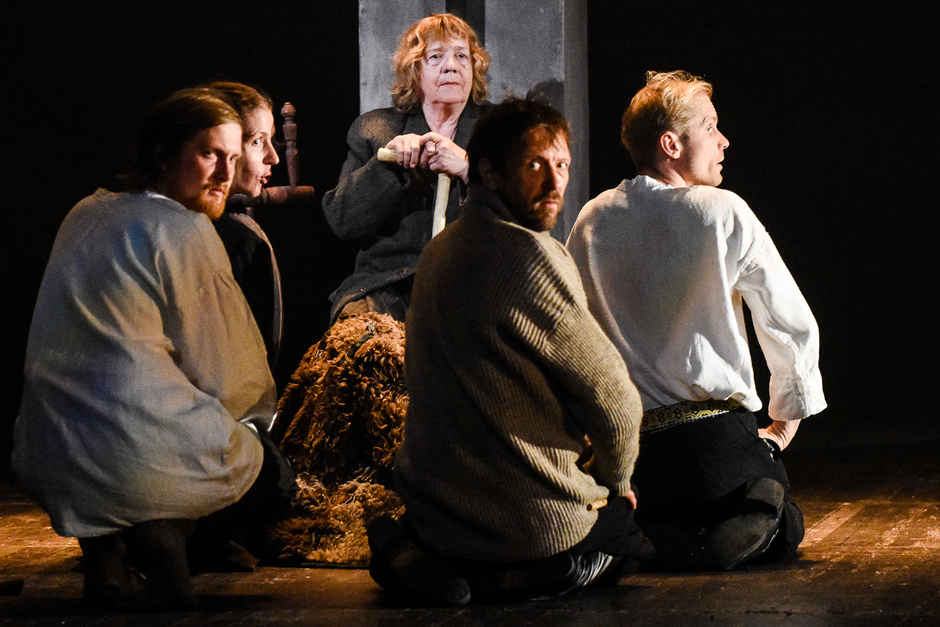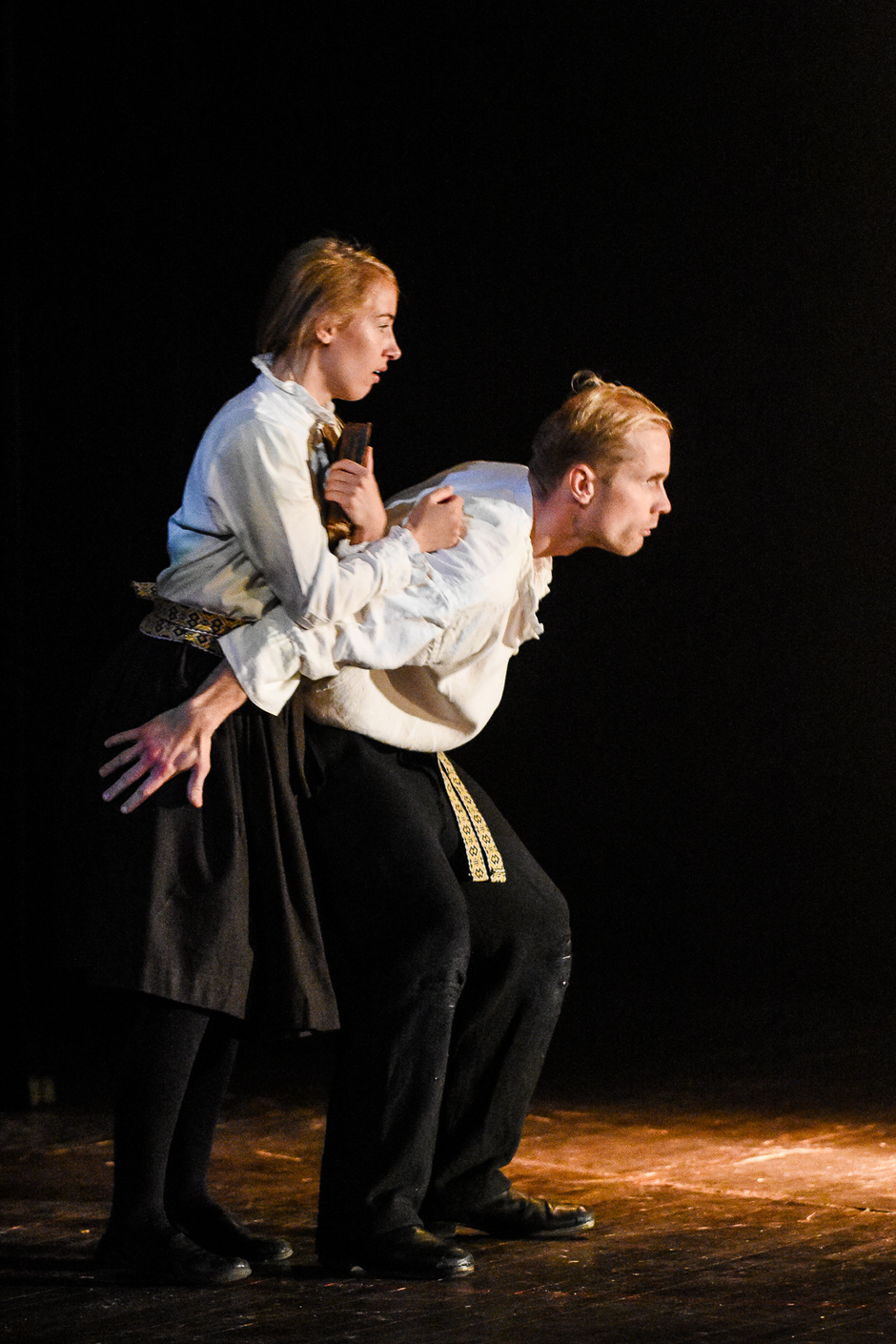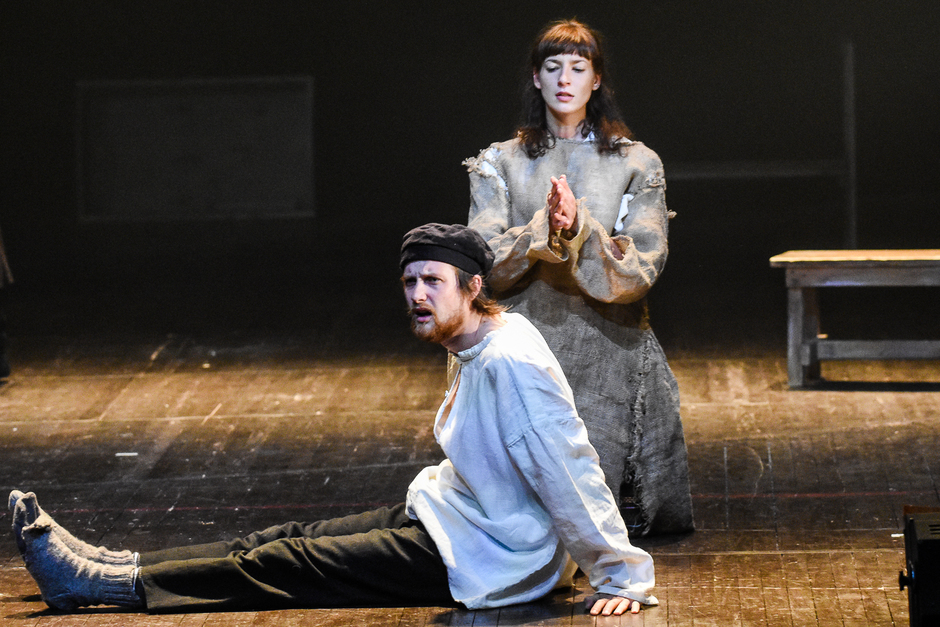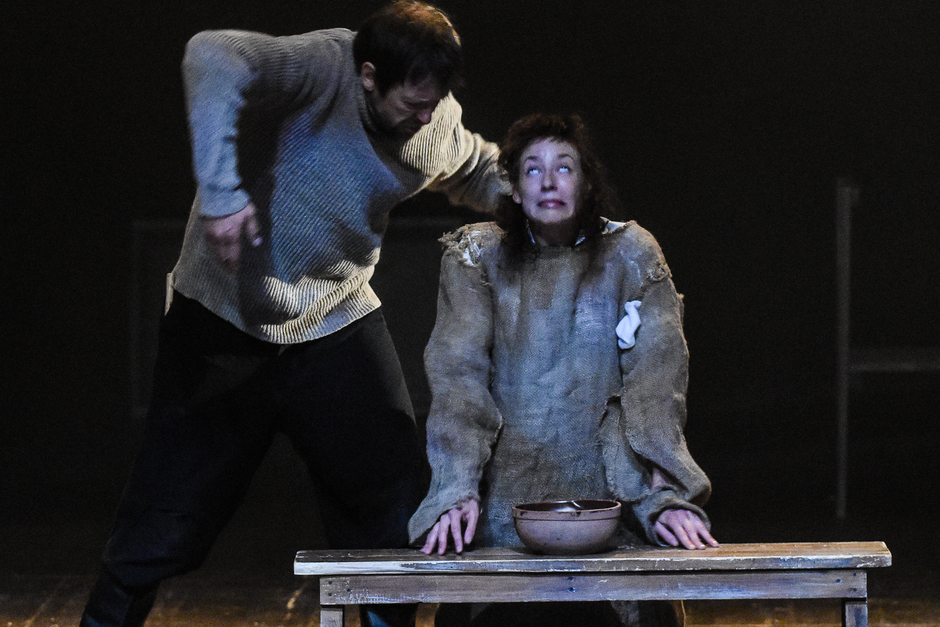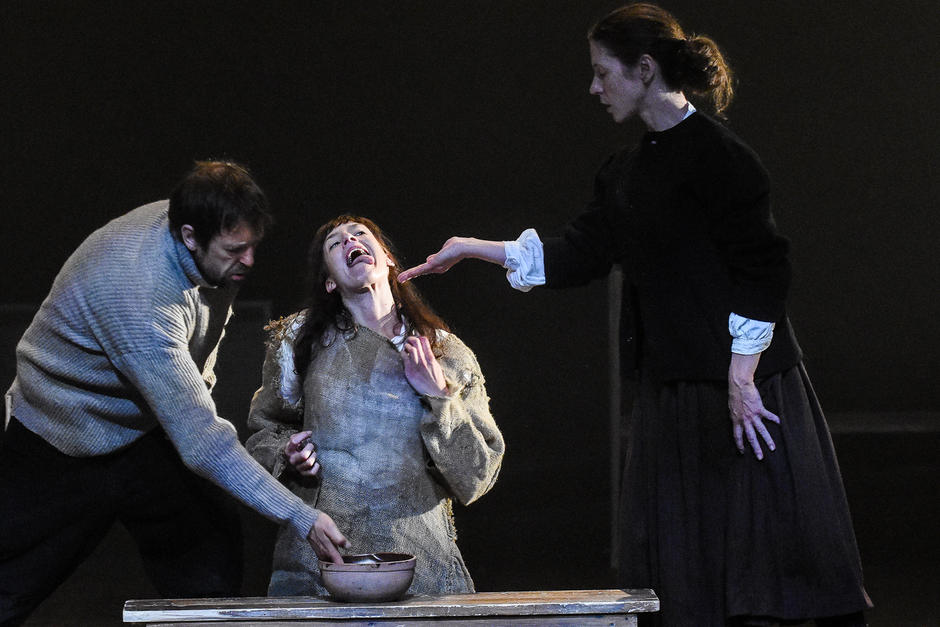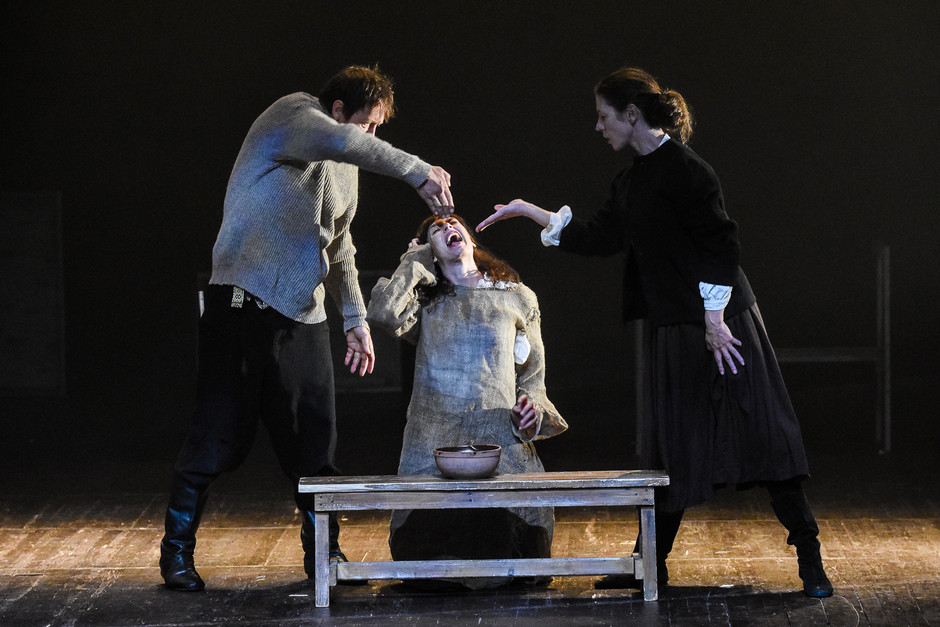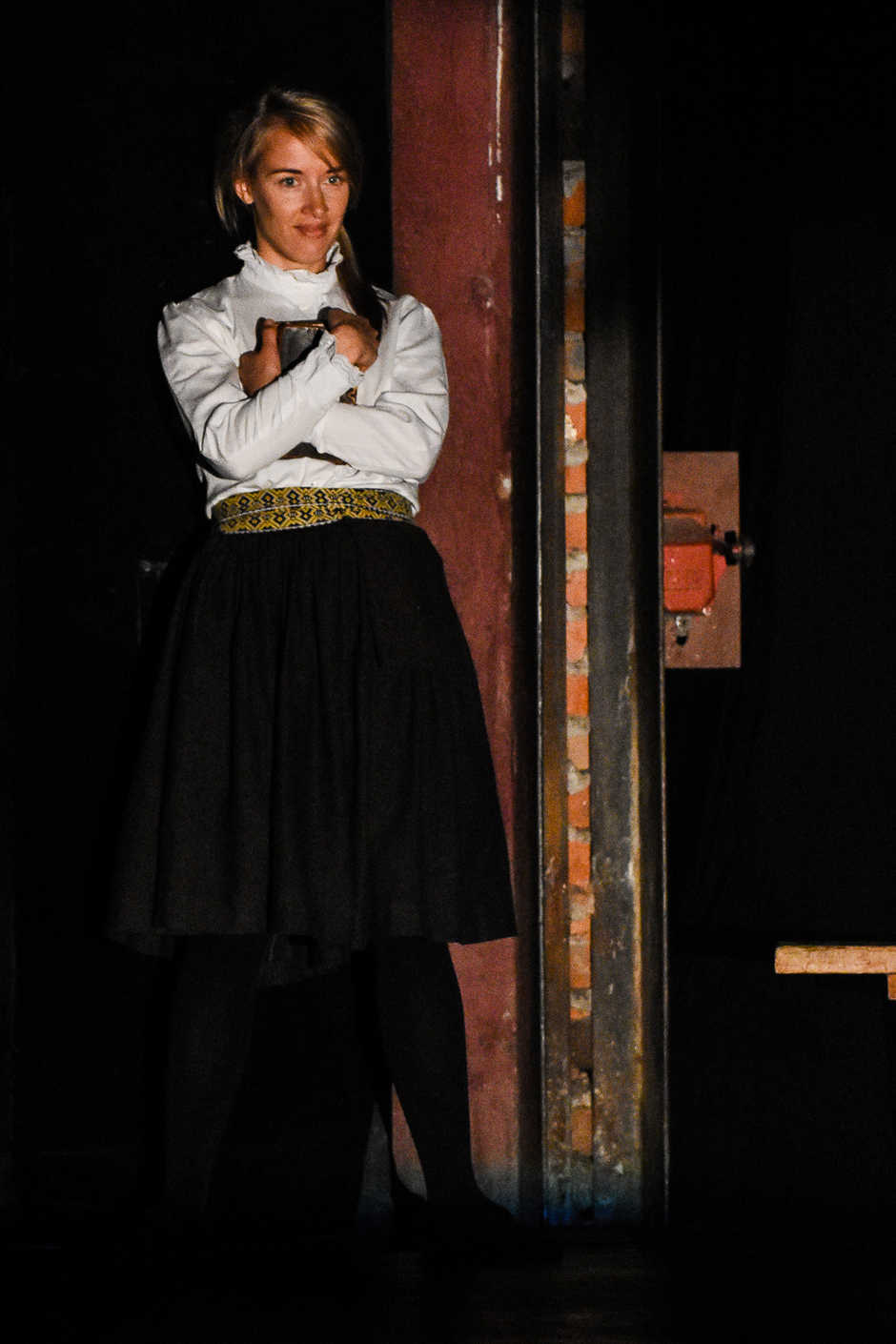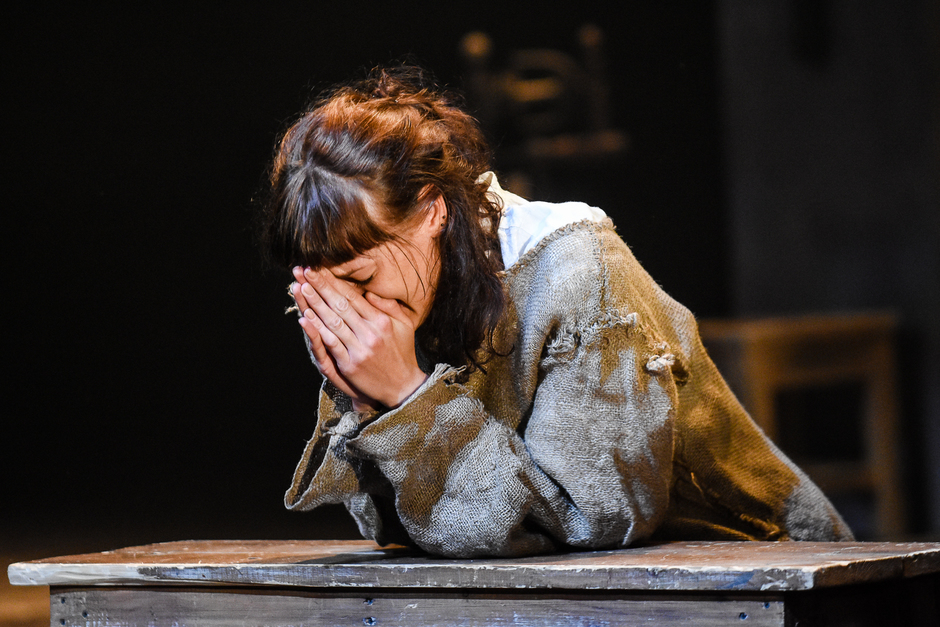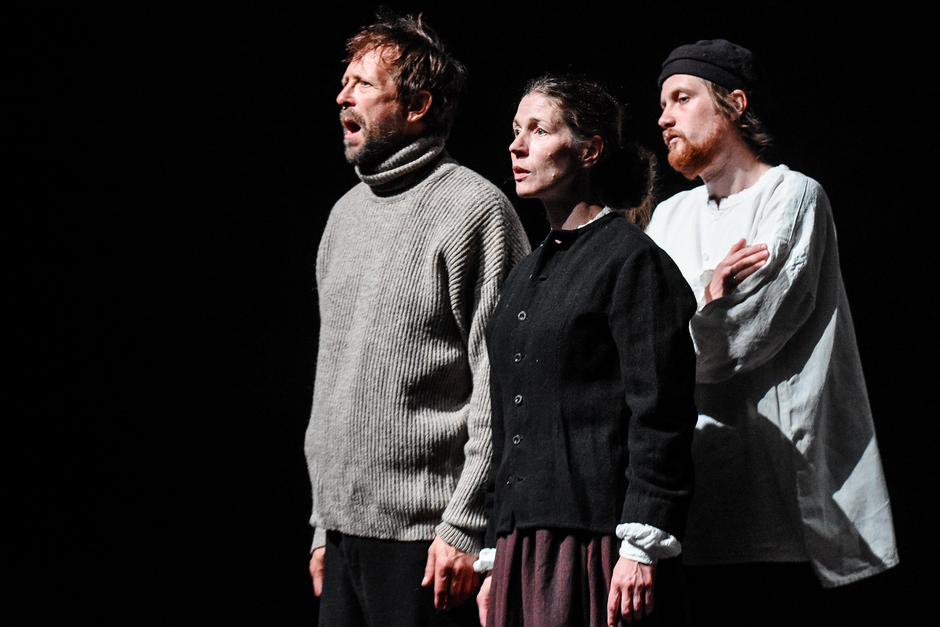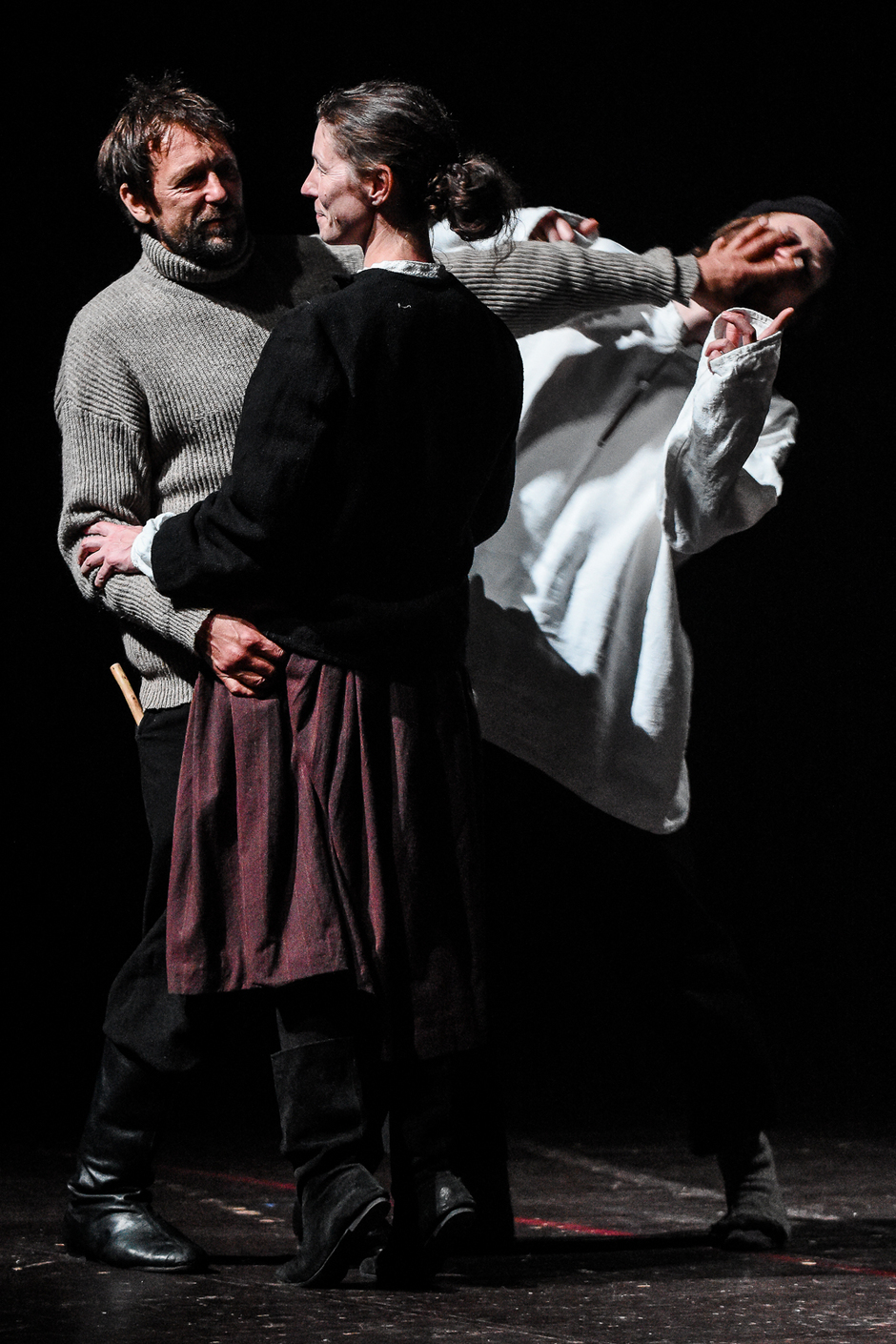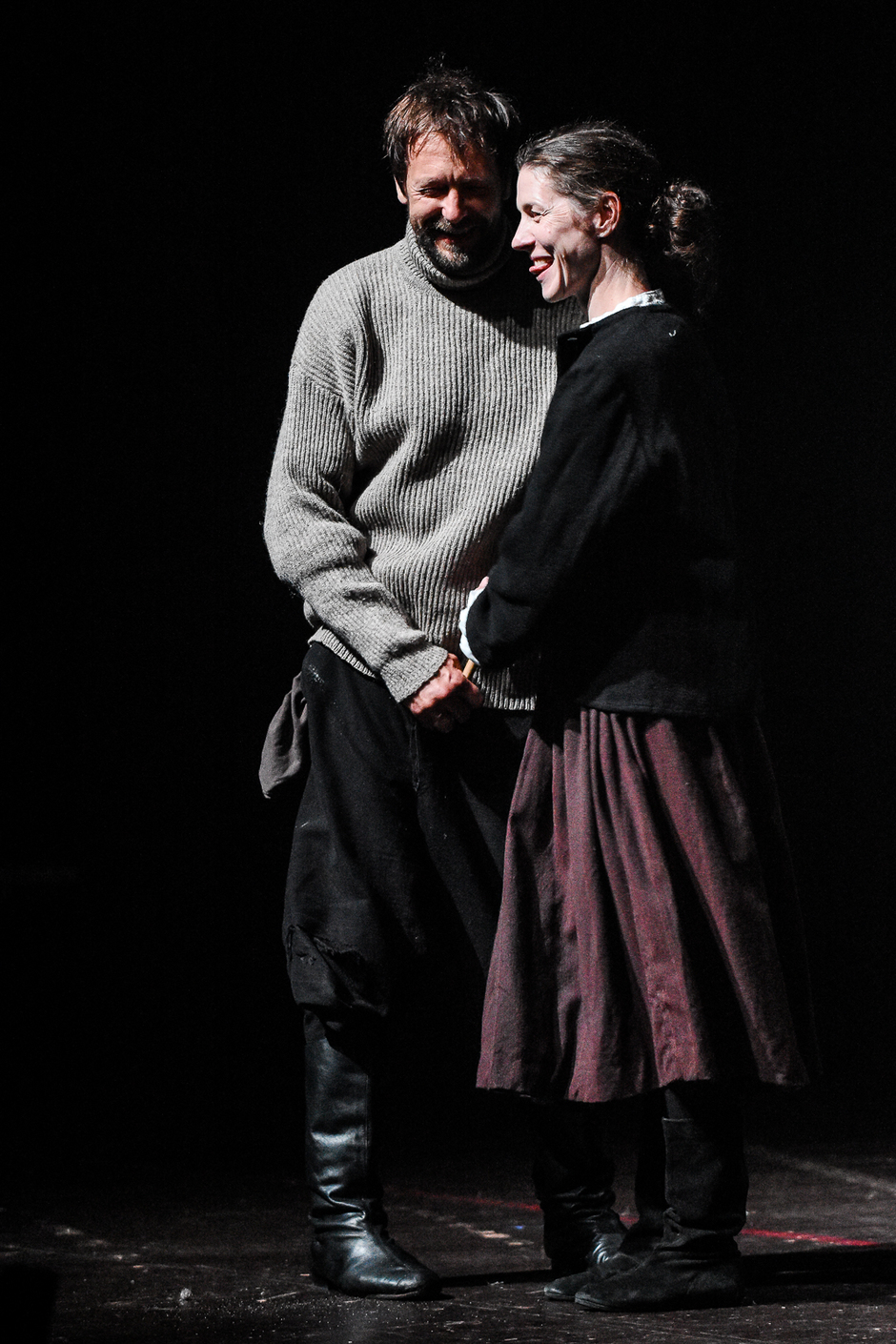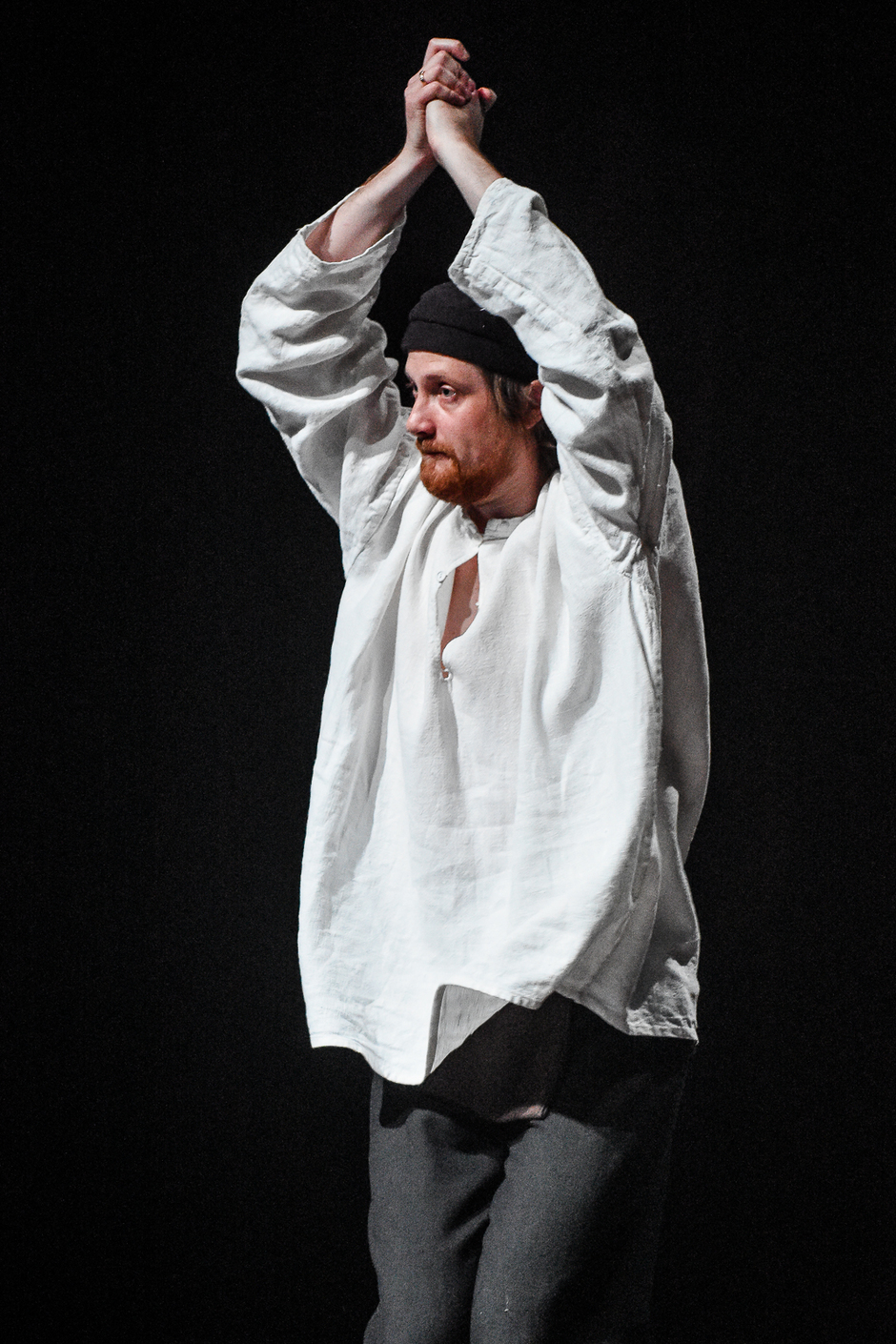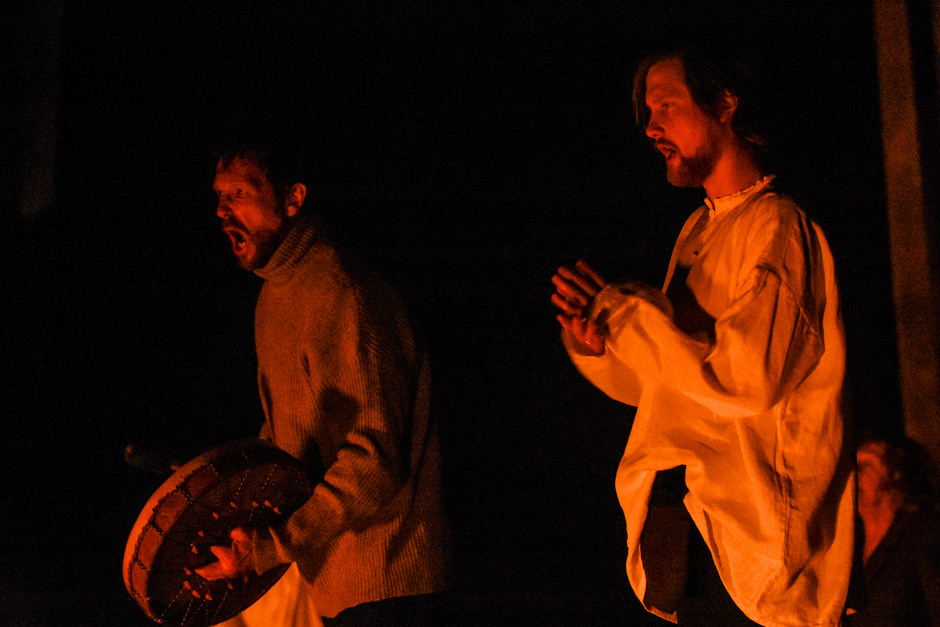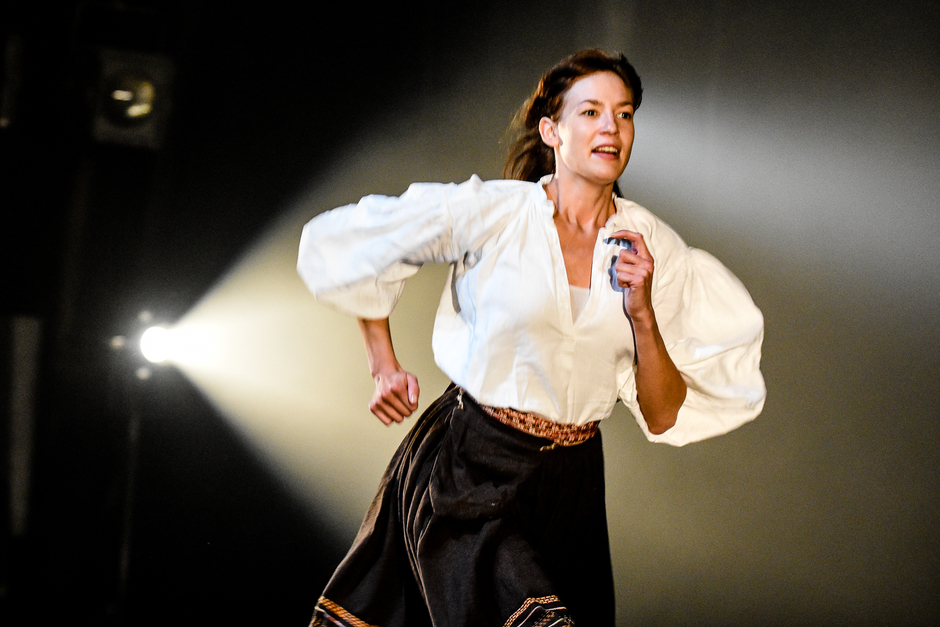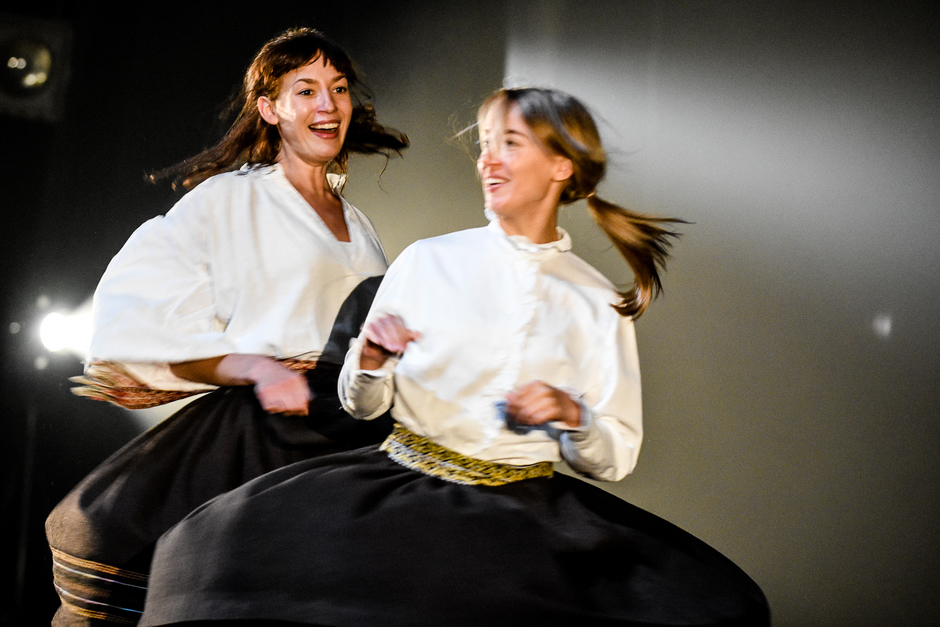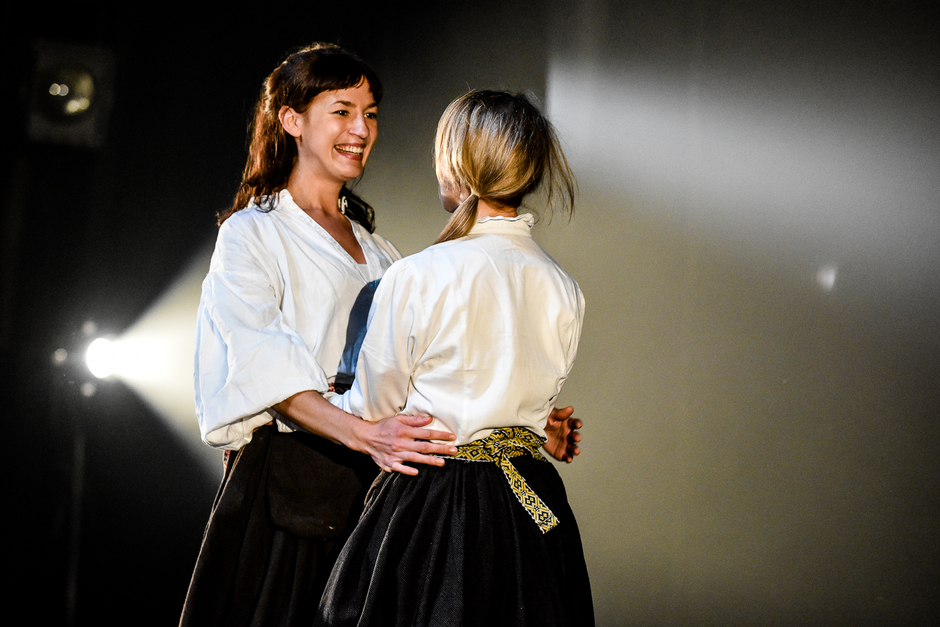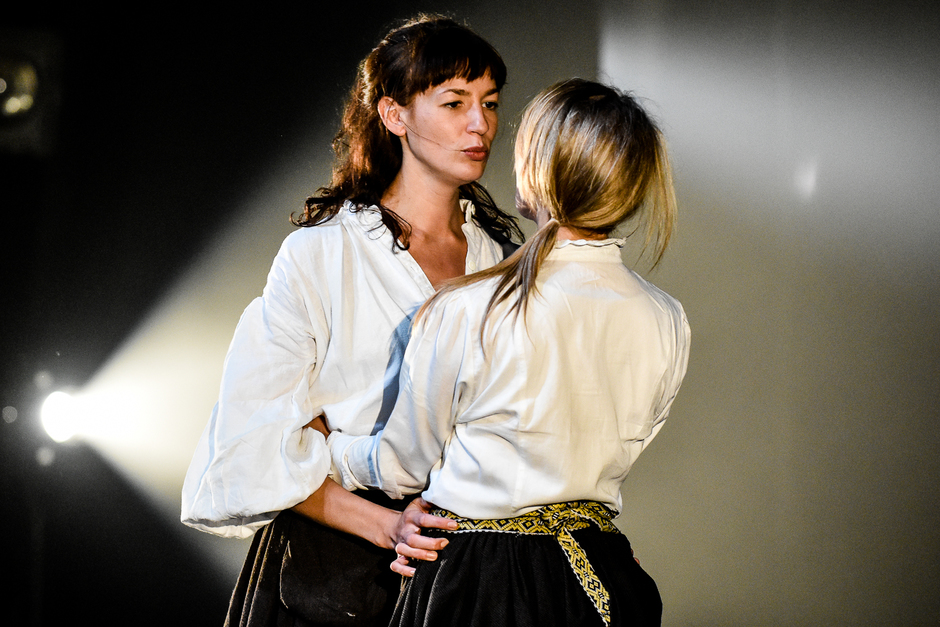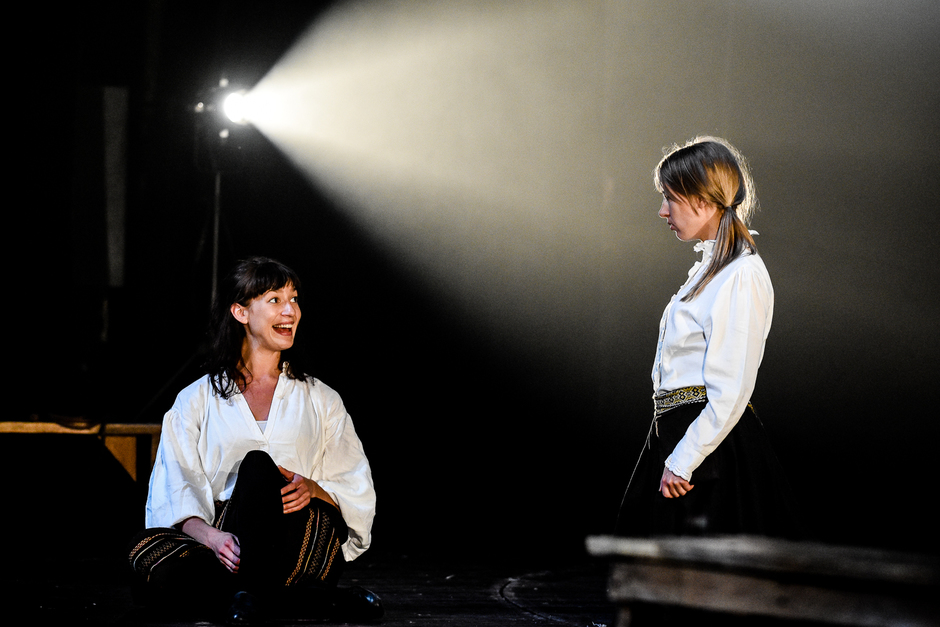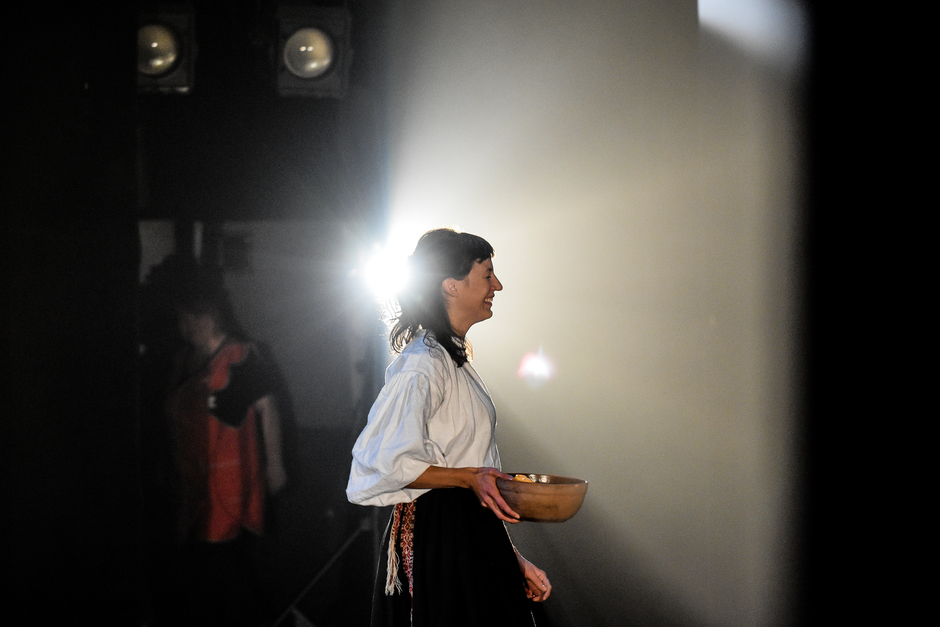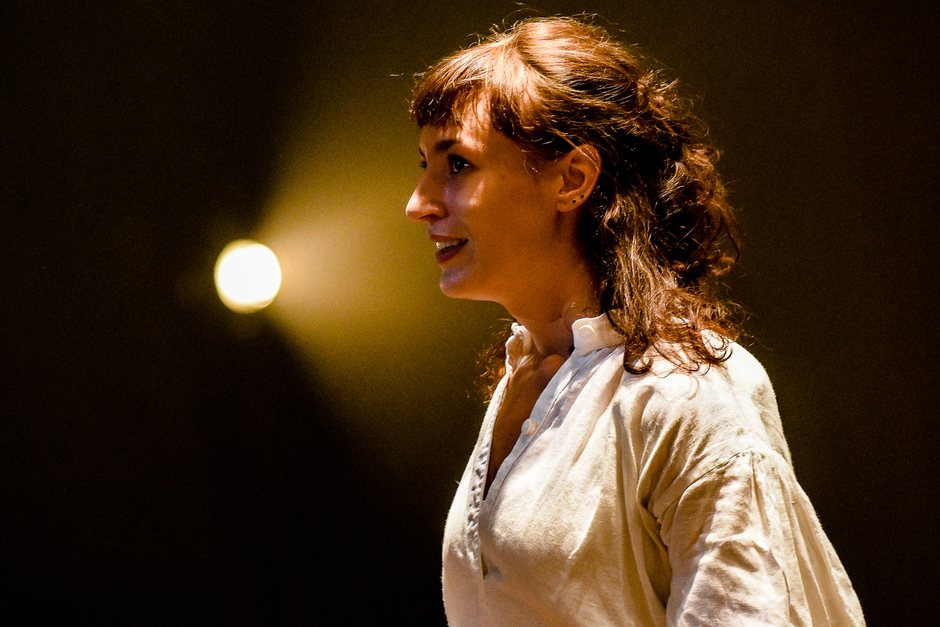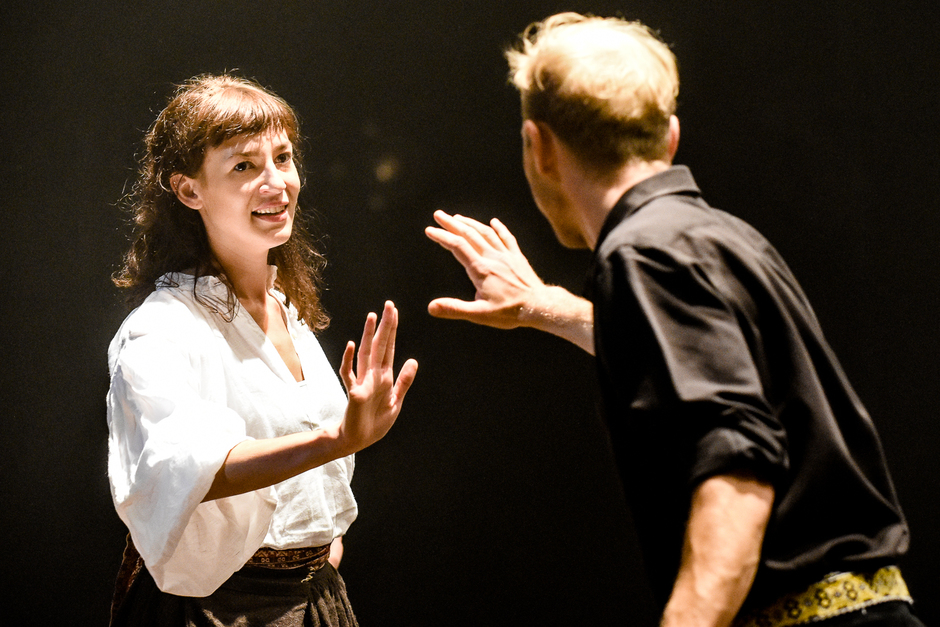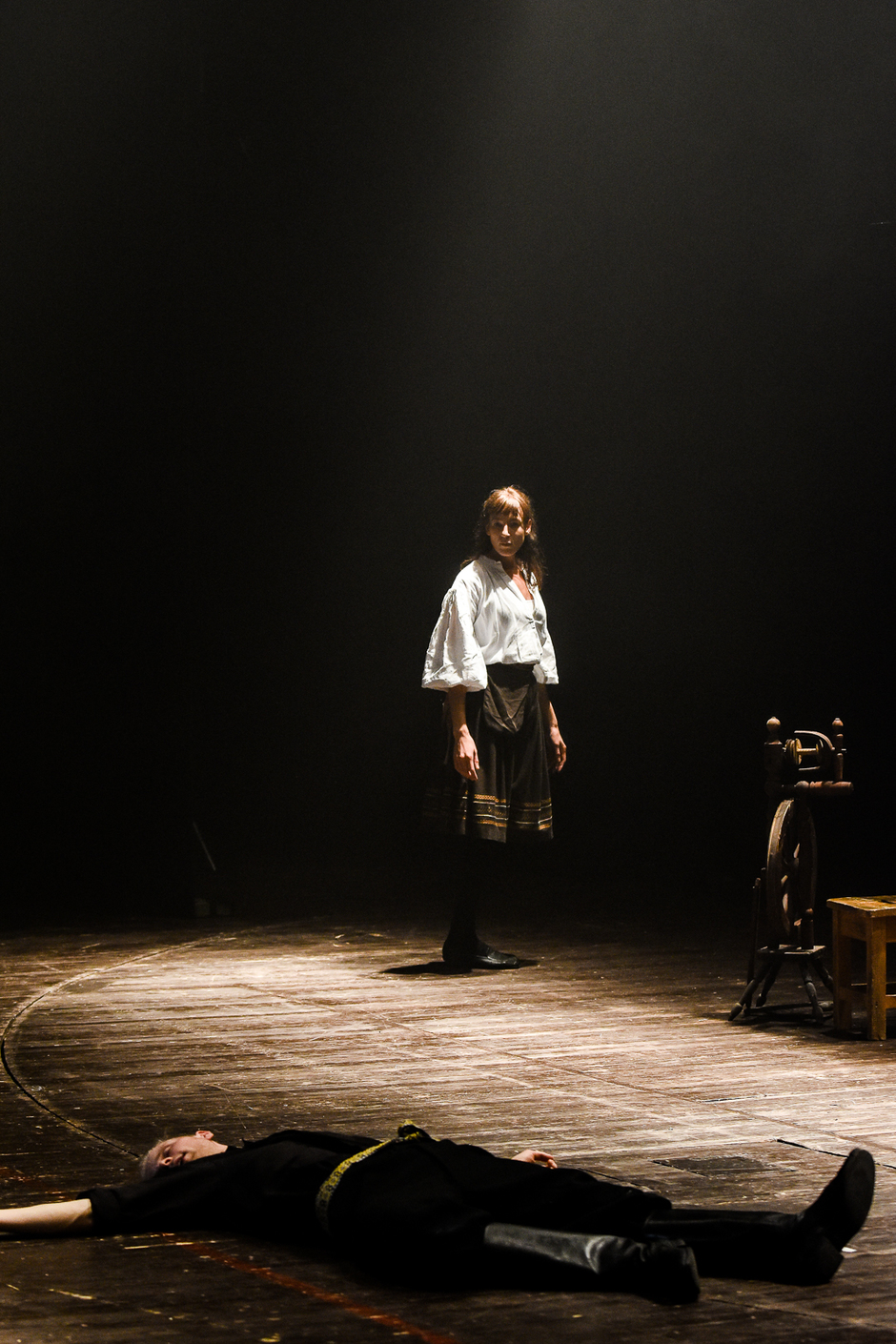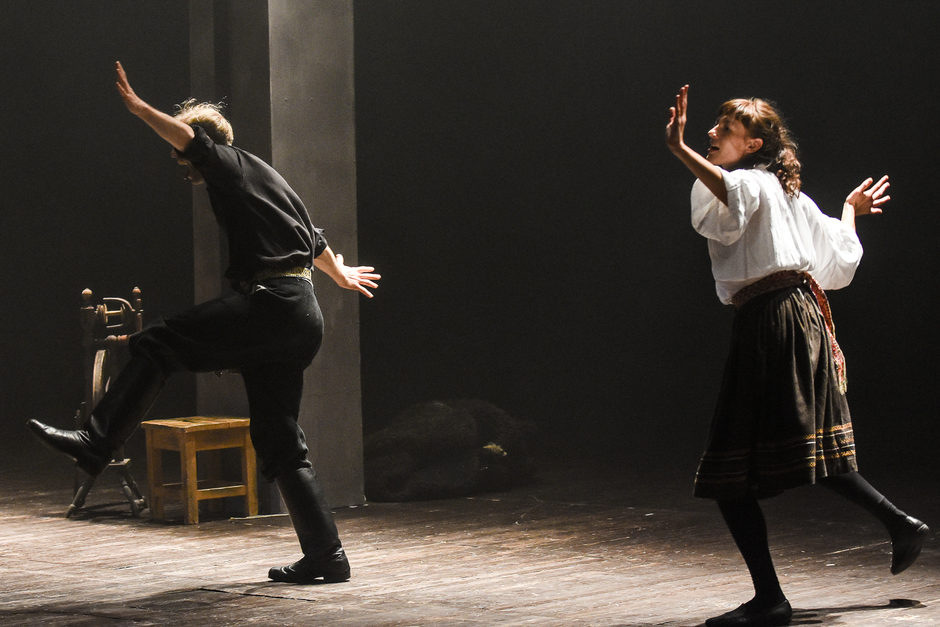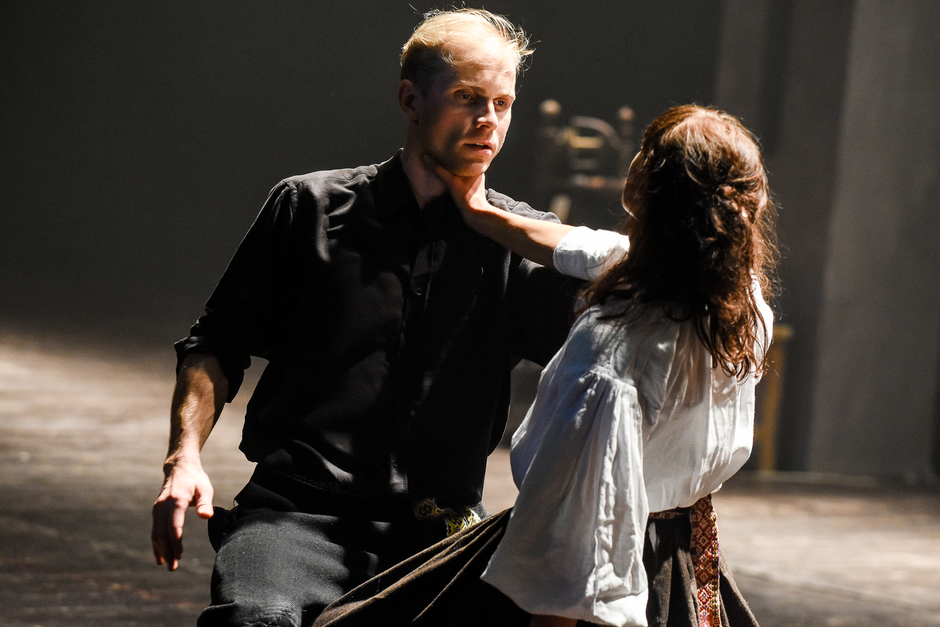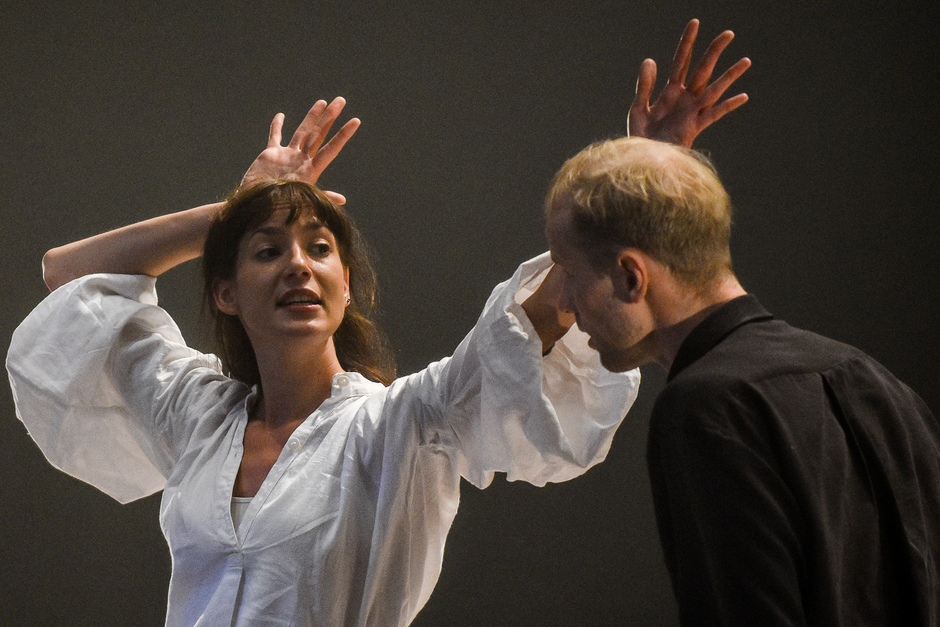''The Werewolf'' infiltrates to Nowruz
The international festival of the Turkic theatres finishes in Kazan
The festival Nowruz ended with performance by the Estonian theatre R. A. A. A. M in Kazan on the stage of Kamal theatre. Estonian troupe, which was the special guest of the fest, brought the play The Werewolf staged by Yakut director Sergey Potapov. The performance of the Baltic States very harmoniously fit into the programme of Nowruz.
Project theatre
The theatre of Estonia is a project one, the actors gather for a certain staging, and the same thing was with The Werewolf as well. According to the producer of the theatre Mart Meos, having become acquainted with the Yakut director Sergey Potapov, he immediately decided to invite him on the performance. The Estonians and the Yakuts are peoples of the North, and although they belong to different language groups and different cultures, between the director and the actors there was a spark.
The premiere of The Werewolf was held in the old boiler house at the factory near the sea, near Tallinn. The performance was played in the warm season, but later got life and began to frequently appear in festivals. The minimalist set design does not preclude the change of the stage.
The Werewolf came to Kazan thanks to Sergey Potapov — this year, Nowruz was partly devoted to the Yakut theatre. Potapov is an actor and director by education, he graduated from the Russian University of Theatre Arts, the workshop of Mark Zakharov. He is director in the Sakha theater, in addition to performances he also makes films. He won the Golden mask for the play Macbeth by Eugène Ionesco.
The poetry of charms and spells
In fact, the play of the Estonian classics August Kitzberg The Werewolf is a classic romance, it had been already staged earlier, in Russia in particular. The romance, not pretending to have a special depth and philosophy, when staging it is so easy to get into sentimentality.
Potapov made from The Werewolf a legend, imbued with folklore motives, and managed to do it so gradually that speaks of impeccable taste of the director.
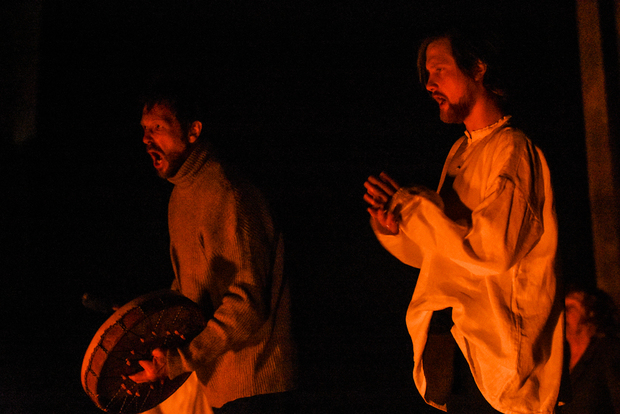
The scenography of the performance is more than uncluttered — austere cross at the center of the stage and a few benches. The cross in this context, I think, is the symbol of Christianity, which was accepted by the North, the forest people, and the cross that carries the main character Tina, the daughter of a woman accused of witchcraft and beaten to death.
The plot of The Werewolf is simple — a love triangle, two strong women did not share a man. But to assume that The Werewolf by Sergey Potapov is only about this is unbearably banal. His performance — it is a well, clearly and correctly read opera score, where folk motifs are metered and skillfully introduced.
The clash of Tina and the family that took her in and raised, is a conflict not just on the principle ''own'' and ''alien''. This is the clash of two ideologies — human of nature, able to listen to forest, river, field, and a rational beginning, a clearly built hierarchy.
But Tina and her opposites are included in this folk element, imbued with the ''poetry of spells and incantations'', as it is said in the article with the same name by Alexander Blok, who wrote in his study that ''for us, the deepest abyss lies between man and nature, they (ancestors — editor's note) has the harmony with nature, native and silently.''
Potapov is a man nature, I do not know whether it is true or just a nice fiction, but he is considered to be the grandson of a shaman. His understanding of and harmony with nature are indeed ''native and silent''. Hence the figurative language of the play, where a lot of things, but almost all can be solved exactly using the metaphor, the encrypted image, the system of symbols.
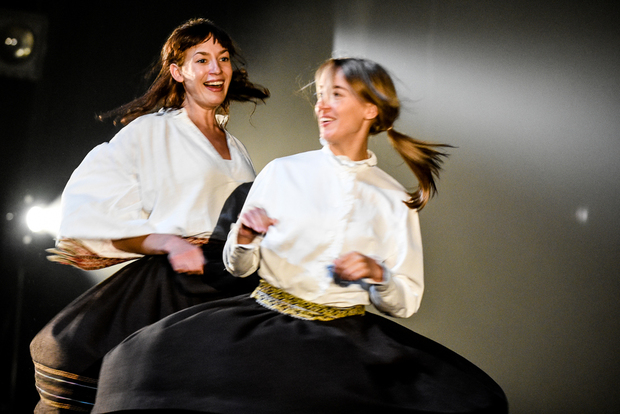
Potapov has built quite hard director design of The Werewolf, somehow miraculously achieved from the actors, all without exception, maximum freedom. And this is also a kind of communion with nature.
But for the ''otherness'', at all times, one has had always to pay. The main character paid for it by life. Christian culture struggles with paganism. Paganism is playing with fire when you without knowing evil accidentally learn such secrets that you should not know. Longing, despair, love – it is what permeated the play of Sergey Potapov, subordinate to a clear rhythm.
And if you look at the context of the performance, the death of Tina is not perceived as a tragedy — she seemed to dissolve in the very nature a part of which she was. Her departure is natural and reconciling. Because for her there was no abyss between her and the universe.
Sergey Potapov has begun working with the troupe of the Menzelinsky theatre, and he will stage a play in the Kamal Theatre.
